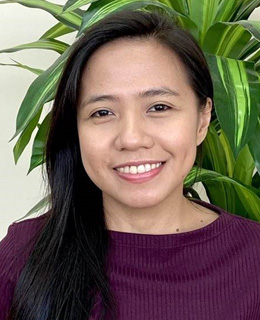
Why pursue graduate study in Political Science?
The Department of Political Science offers an innovative curriculum, an outstanding faculty, ample research facilities, and opportunities for intellectual exchange through seminars and workshops.
Through lectures, seminars, workshops, individual projects, overseas attachments and internships, you can study every aspect of the field, including topics such as political parties, elections, international security in the Asia-Pacific region and competing conceptions of democracy and justice. You will learn to analyse all kinds of qualitative and quantitative data, acquiring effective research and communication skills.
As a graduate student of Political Science, you will be encouraged to pursue your own interests and projects and you will be able to work with internationally prominent researchers and award-winning teachers.
Programmes & Curriculum
About the Course
The Master of Social Sciences (Political Science) programme provides practical research skills, stress theoretical and conceptual analyses, and allow diverse methodological choices. Students are encouraged to adopt a multidisciplinary approach and think how politics connects to society, the economy, culture, religion, morality, and other aspirations.
Supervision is available in four subfields:
- Comparative Politics
- International Relations
- Political Theory
- Governance and Public Policy
Course Structure
1. Complete and pass:
- six modules (at least 75% of the total modular credit (MC) requirements must be at level 5000 or 6000), including:
- PS5111 Research Design in Political Science
- PS6770 Graduate Research Seminar
- core modules in two of the four subfields
- Where applicable, obtained a satisfactory grade in the graduate English course at intermediate level
- Thesis
2. Obtain a minimum Cumulative Average Point (CAP) of 3.00.
For information on modules, see here.
About the Course
The Doctor of Philosophy (Political Science) is a research intensive advanced course. Candidates should possess either a good Master's degree in Political Science or an NUS Honours degree (at least Second Class Upper Division) or equivalent (e.g., a four-year Bachelor’s degree with an average grade above B) in a relevant discipline, and the ability to pursue research in the candidate's proposed field of advanced study. Research scholarships are available.
The Department is particularly strong in the study of Asian politics, governance and international relations with a specific focus on China and Southeast Asia. However, the curriculum covers many other subjects such as democratic theory, political economy, public policy, international security, state-society relations, political thought (Western and Eastern), and development studies.
There will be comprehensive education and systematic training in four subfields: Comparative Politics, International Relations, Governance & Public Policy, and Political Theory.
Course Structure
To successfully graduate with a PhD, students are expected to achieve the following:
- Complete and pass seven modules (at least 75 % of the total modular credit (MC) requirements must be at level 5000 or 6000).
- PS5111 Research Design in Political Science
- PS6770 Graduate Research Seminar
- An additional methods module
- Core modules in two of the four subfields
- Obtain a minimum Cumulative Average Point (CAP) of 3.50
- Where applicable, obtain a satisfactory grade in the graduate English course at advanced level
- Pass a PhD Qualifying Examination
- Pass an Oral Examination
- Submit and pass a Thesis
For information on modules, see here.
Job Ready
Political Science graduates have good career opportunities both in the public and private sectors in Singapore and globally. Several government ministries (Defence, Education, Foreign Affairs, and Information, Communication and the Arts) and the local mass media (MediaCorp and Singapore Press Holdings) have regularly recruited our graduates. Other graduates have found rewarding careers in banks, public relations firms, multinational corporations and teaching and research.
Testimonials

George Edward May
PhD Student in Political Science
The NUS Political Science department has provided an intellectually nourishing environment in which I have grown more confident and competent as a researcher and teacher. The academic staff in Political Science and across FASS have driven me to read, think, critique, and write more broadly and deeply than I have elsewhere. Coursework modules have introduced me to aspects of social science I would not have encountered had I remained in the UK, as well as a deeper understanding of how my interests - which originate in IR - relate to other sub-disciplines in Political Science. As a gateway to Southeast Asia, NUS has provided the ideal base from which to undertake extended fieldwork in the region. The opportunities the department have provided for teaching -and the inspiring students I have had the chance to work with - have been truly enriching, professionally and personally. Last but not least, my peers in FASS have been a vital source of inspiration, motivation, and comradery through tougher times.
Mary Ann Joy Quirapas Franco
PhD in Political Science
For years, I worked as a policy practitioner and researcher. My PhD experience at NUS has given me further skills and knowledge to conduct better research. The modules stressed the importance of theoretical foundations and methodological rigour before any practical applications of political science concepts. The program also gives me the opportunities to expand my professional network through summer schools, overseas workshops, and field research trips that are always helpful in building a successful career after obtaining a PhD. Finally, what I really value most with the whole experience is the people I meet during programme - the faculty, fellow graduate students and administrative staff. The meaningful discussions and lasting friendships with them make the PhD program more fruitful and memorable.

The Faculty of Arts and Social Sciences, National University of Singapore (NUS) is committed to environmental sustainability.
This e-brochure is part of our sustained effort to reduce waste and foster a culture of care for the environment among the NUS and broader community.

